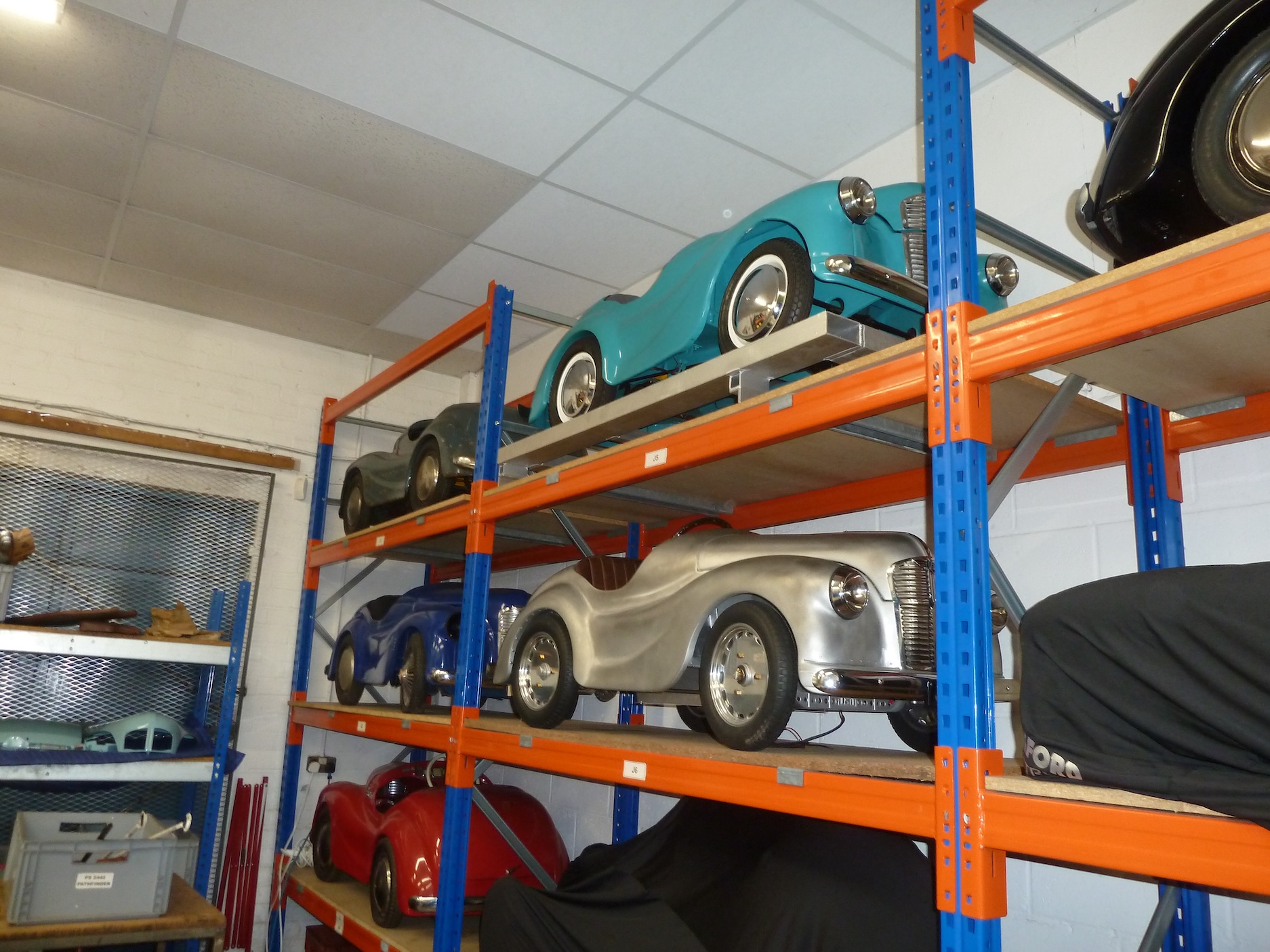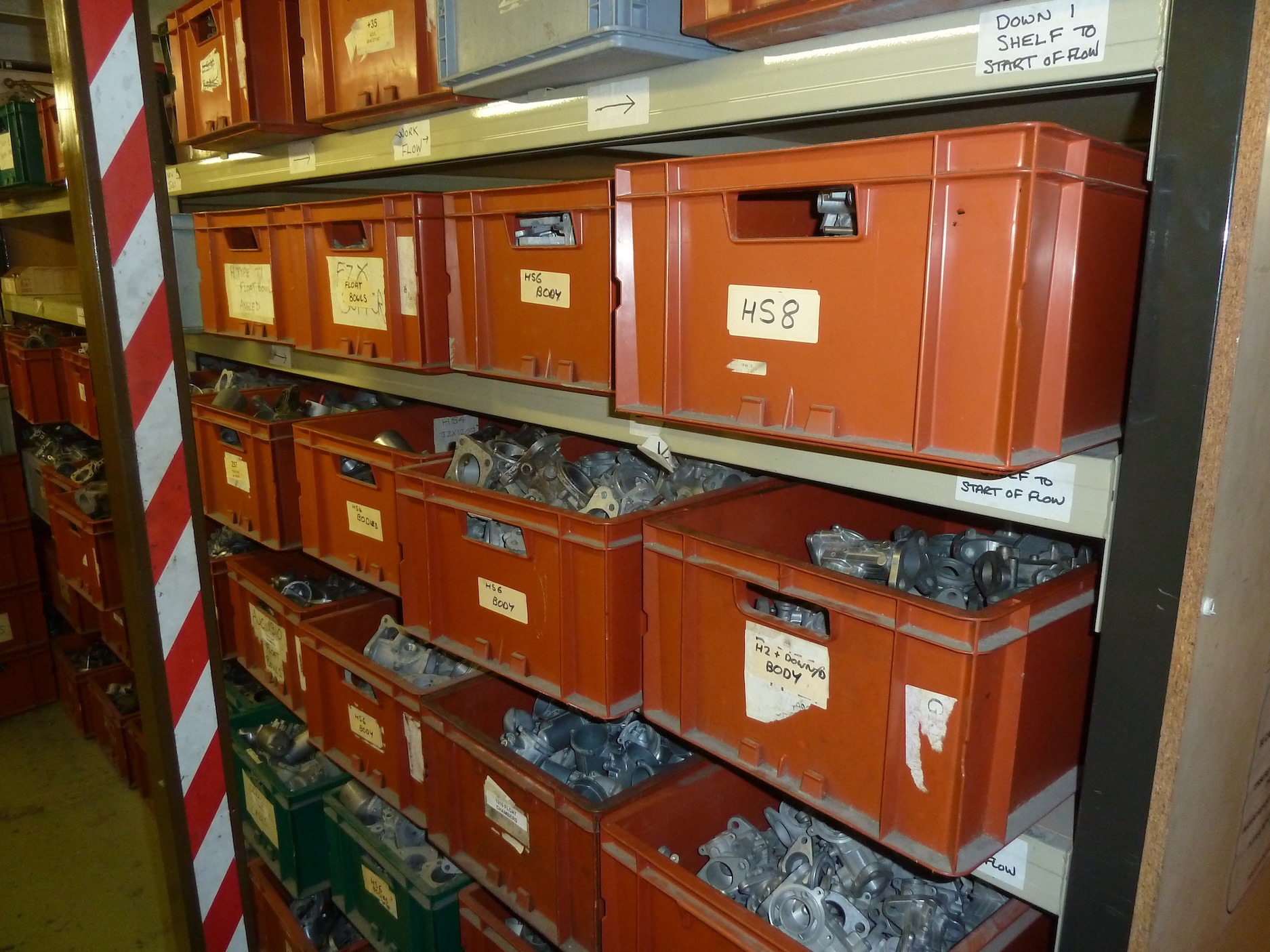Kim Henson takes a trip to Salisbury, the home of Burlen Fuel Systems, to see how the firm can help classic enthusiasts keep their cars’ fuel delivery equipment in top form.
(All words and photographs © Kim Henson, apart from some photographs from Burlen Fuel Systems, as individually credited.)
It was back in 1971 when Burlen Services was started in the city of Salisbury by John Burnett and Mike Cullen, and at that time the business was undertaking general automotive servicing and repairs.
Three years later, the 1974 fuel crisis resulted in the firm establishing a name for themselves in tuning vehicle carburetters for optimum fuel economy.
During the half-century since then Burlen has built a deserved excellent reputation as it has expanded its fuel system operations (notably in the field of SU, Zenith and Amal units and components), and has been the home for the Austin Pedal Cars Business for the last few years.
A move to the outskirts of the city came in 1986, to Spitfire House, an ex-dispersal factory premises where Spitfire aeroplanes were assembled during the Second World War, and the business name was changed to ‘Burlen Fuel Systems’.
Throughout the history of Burlen, the enviable emphasis has always been on producing top quality items, and in many cases the original component designs have been enhanced by modern production techniques and innovation by the dedicated workforce.
These days the firm, which owns the brands of SU, Zenith, Stromberg and Amal, makes, rebuilds and modifies fuel system components to help customers with a very wide range of classic vehicles. Meanwhile the expanding Austin Pedal Car side of the business tackles the sale, repair and restoration of these iconic vehicles for junior enthusiasts, and can provide spares to help keep them ‘on the road’.
This feature primarily concentrates on today’s operations and my tour of the premises, but if you are interested in finding out more about the firm’s 50+ years in business (and how the various brands mentioned above came under the Burlen umbrella), there is much fascinating historical information on their website: https://burlen.co.uk/
My tour at Burlen Fuel Systems
I was shown round Burlen’s extensive premises by Matt Merriman, Customer Services and HR Manager. My report on the tour, which follows, is written in the sequence in which we toured the different aspects of the business.
First stop was the in-house production machine shop, where components are created from raw UK-sourced castings to produce precision-made items, working to specific tooling drawings.
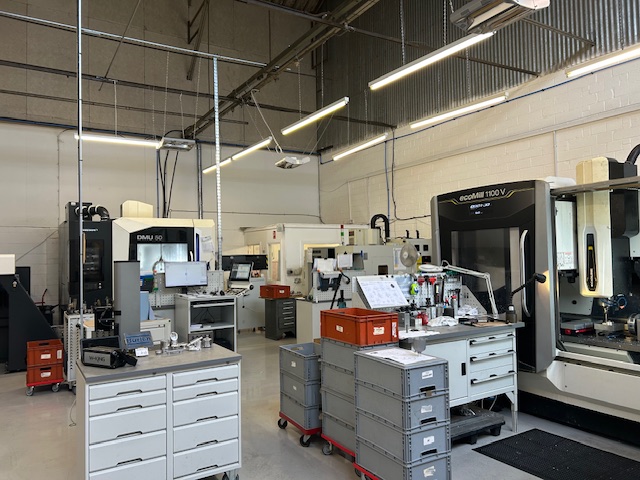
Techniques applied include machining parts from solid billets of metal. State of the art highly accurate CNC (‘Computer Numerical Control’) machining operations ensure top quality precise results.
Matt also explained that these days improved casting methods help improve the quality, effectiveness and durability of the finished products.
While, for example, original SU drawings are used as the basis for manufacturing new components, where seen as advantageous, modifications are made to improve various aspects.
Having visited Burlen several times over the last four decades or so, I was amazed at how the firm has grown and the scale of the manufacturing operations taking place today, although not surprised at the dedication of the staff in pursuit of the highest quality when making new parts; this approach has always been a hallmark of the company.
Austin Pedal Cars
Next I was shown the part of the Burlen operation catering for the Austin J40 pedal cars. This really deserves a feature on its own, for the story is remarkable.
It started in 1949 when the Austin Motor Company started building the J40 and Pathfinder pedal cars in a purpose-built factory in south Wales (and this has been covered previously on Wheels-Alive; please enter ‘J40’ in the website’s search box and a number of articles will appear, with the direct link to our main feature being: https://www.wheels-alive.co.uk/why-austins-smallest-car-hails-from-the-welsh-valleys/).
The cars were produced using offcuts of steel from Austin’s main Longbridge car factory, and made by Welsh miners suffering from various disabilities, notably Pneumoconiosis resulting from their working conditions. These small scale Austins were loved for their attention to detail (including a dummy ‘engine’, complete with spark plugs) and their resemblance to the full size models of that era.
Over the following years until 1971, some 32,000 of the J40 pedal cars found homes with enthusiastic youngsters, in addition to 3,000 ‘Pathfinder’ models produced in 1949/50 – the Pathfinders were based on racing cars of the time.
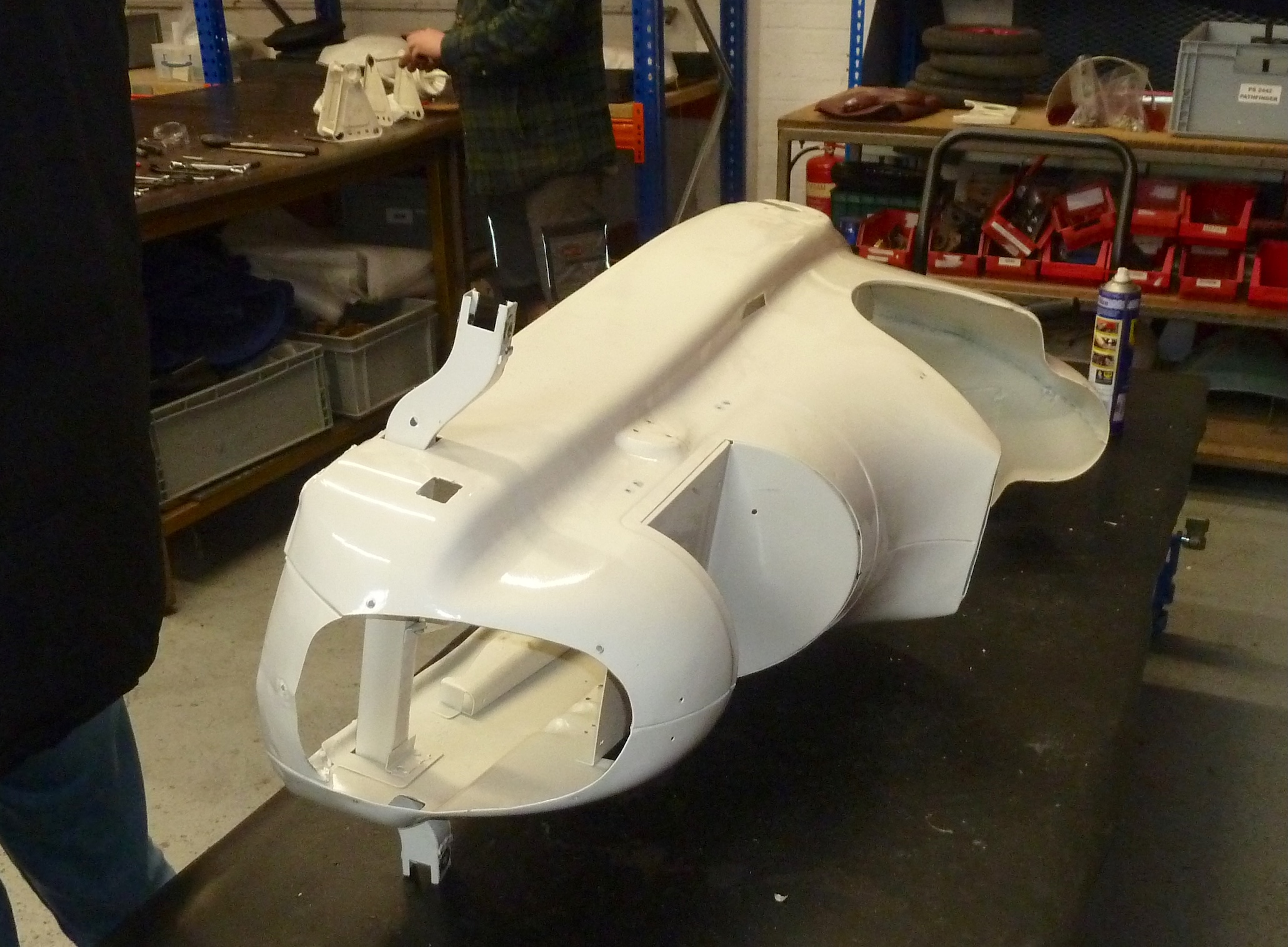
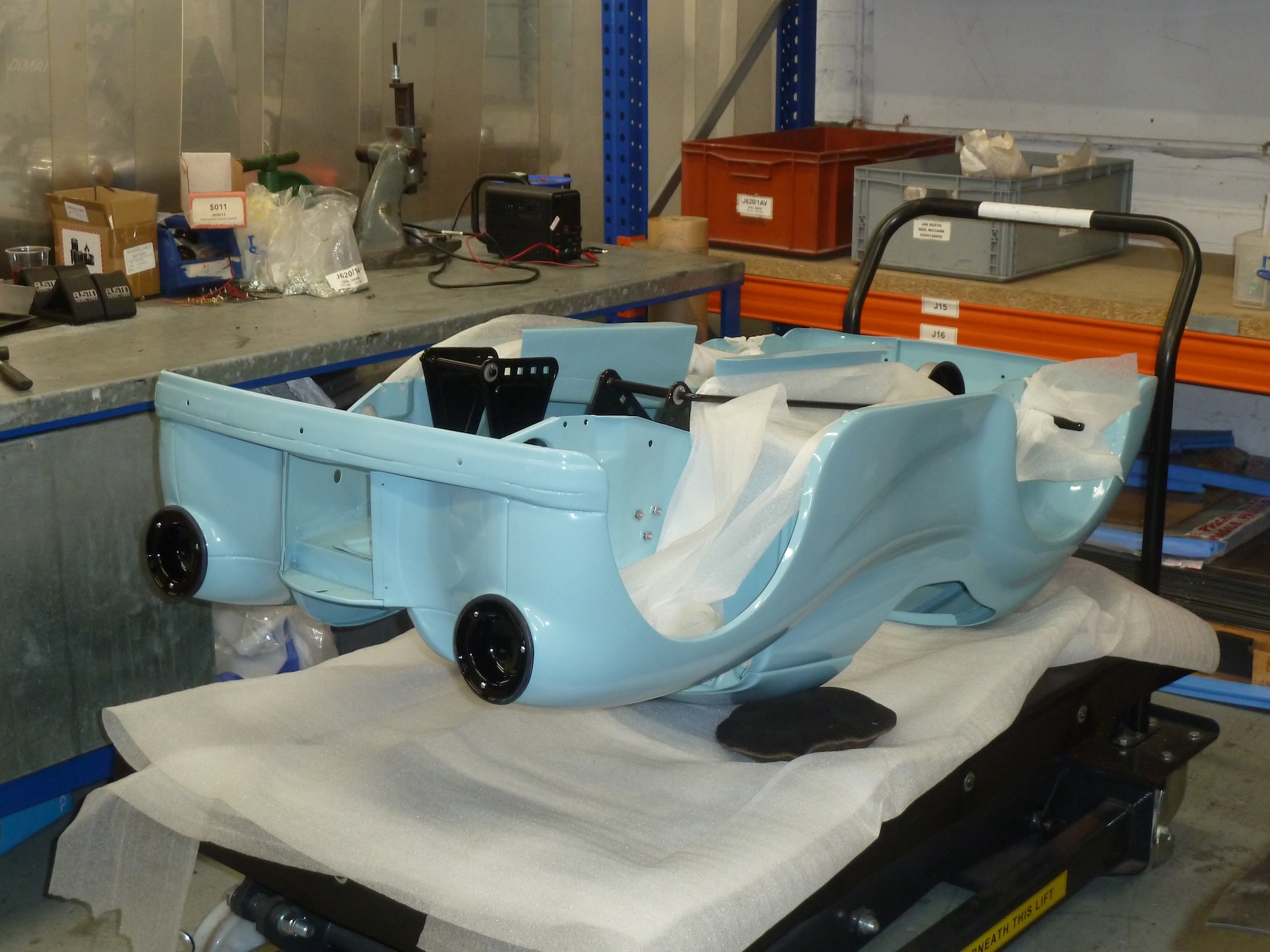
Burlen launched the J40 Motor Company in April 2020, first being involved in parts supply for the cars and growing to become a thriving company supporting all aspects of J40 ownership.
A new ‘J40 Continuation’ model was launched in 2023, the first Austin pedal car to be announced since production of the original model ended in 1971.
In September 2022 Burlen acquired the Austin trademark, permitting new pedal cars and parts to be produced using the Austin name, and a new firm – ‘Austin Pedal Cars Ltd.’ was launched.
A new range of pedal cars is planned for the coming years.
During my visit I was able to see at first hand the care and craftsmanship with which the J40s are built, repaired and restored at Burlen.
A dedicated coachbuilder, fabricators and a team of technicians are employed by Burlen for these operations, with 16-ton press tools being used and steel blanks being cut out on a laser cutter.
In-house 3D scanning is employed when creating components from scratch.
TIG welding is Burlen’s preferred method of welding the panels on these vehicles.
Some aspects such as rechroming being carried out by local firms.
It is interesting to note that in addition to the all-steel bodied J40s, Burlen has produced a hand-made one-off aluminium version.
Fuel Systems
As my tour continued, Matt explained that Burlen has its own design office for fuel system components, with four designers working in this department.
He also advised that, necessarily, component designs have to be updated to cater for changing fuel situations. For example, these days it is essential that components are ‘ethanol-proof’, so the parts and units produced are constantly tested and reviewed to ensure compliance with such demands, and, crucially, long-term durability for buyers.
Some 30,000 stock lines are held by the firm in their two storey warehouse, and many sub-assemblies are available for early despatch when required. Burlen uses different postal/delivery systems for UK and overseas buyers respectively, but in each case only using couriers proven to deliver consistently and on time. They have found DHL to be very effective for traceable deliveries of items sent to customers abroad.
New products are always under development to be put into production, for example carburetter air intakes and complete carburetters.
Boxed components ready for despatch, advice on tuning
I then observed the area set aside within the Burlen base for ‘boxed-up’ fuel system components ready for despatch. Matt explained that in each box is a special instruction guide to assist the buyer in setting-up/tuning for optimum performance and longevity.
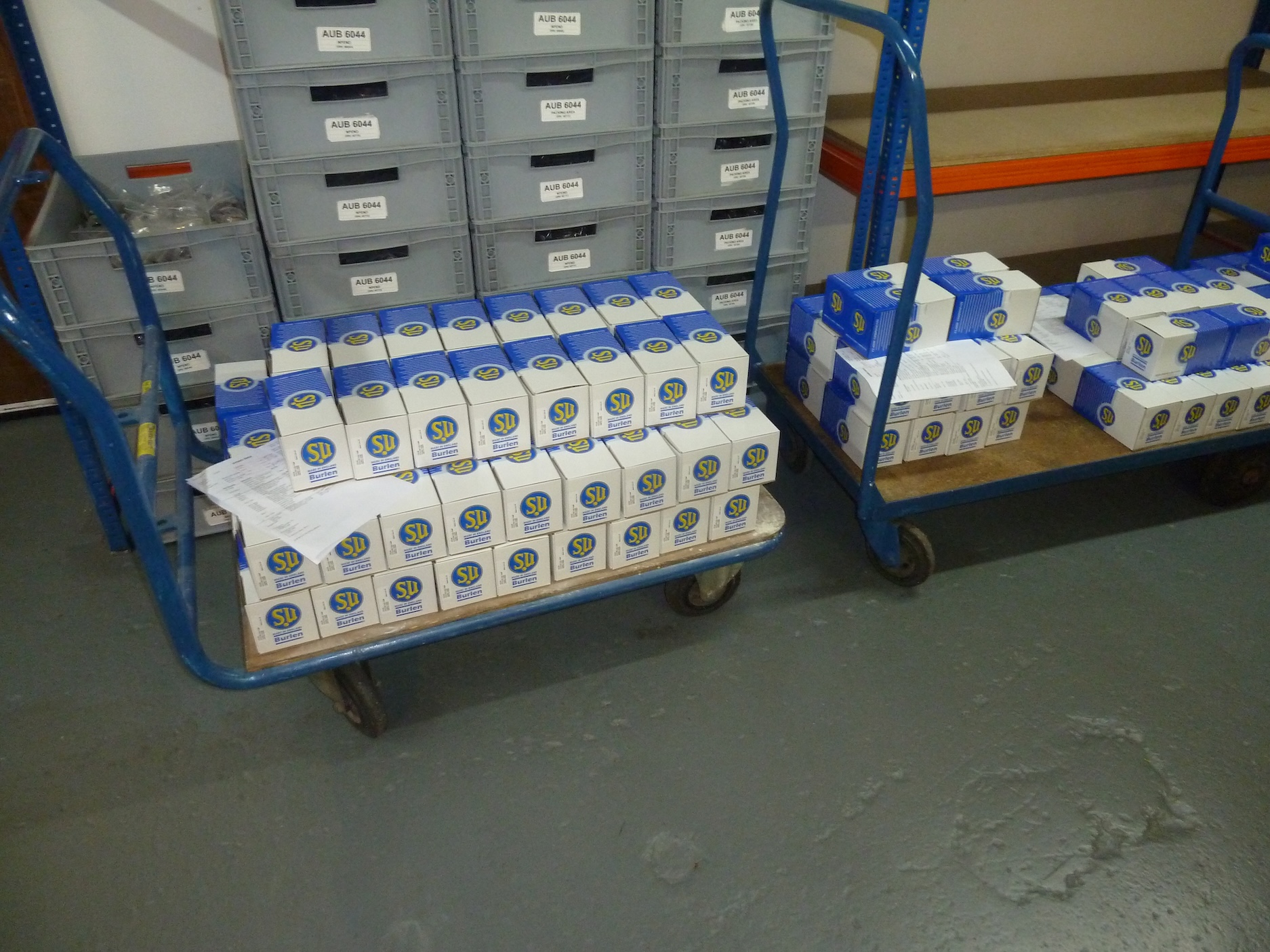
Test facilities for new components
Matt then guided me through the ‘jet, needle and damper’ workshop, also the SU production line and carburetter build shop.
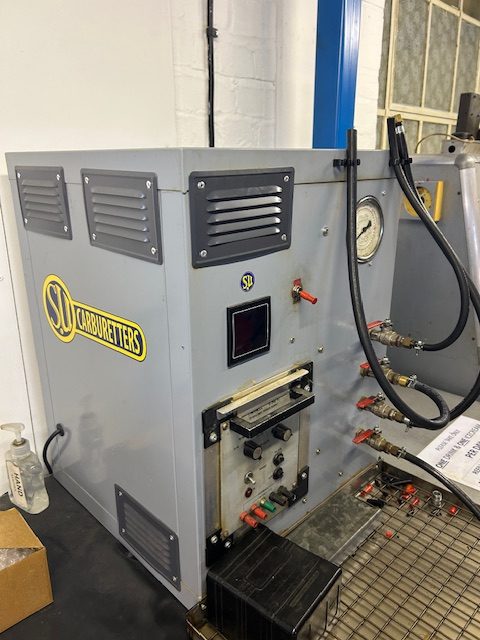
Every new carburetter and fuel pump unit is subjected to extensive testing, including ‘air’ and ‘wet’ assessments, and I was able to witness at first hand the procedures used to ensure that each unit is performing as designed.
Many of the established test procedures for the SU and Amal units are carried out ‘by hand’, using proven equipment and expertise that has been built up and applied by the company over many decades. Examples include SU electric fuel pump test rigs and an original flow test machine used for Amal and Zenith carburetters.
All the fuel pumps are tested using a liquid with the same viscosity as petrol (without any of the associated risks of using petrol!), and at higher pressure than experienced when in service on a vehicle.
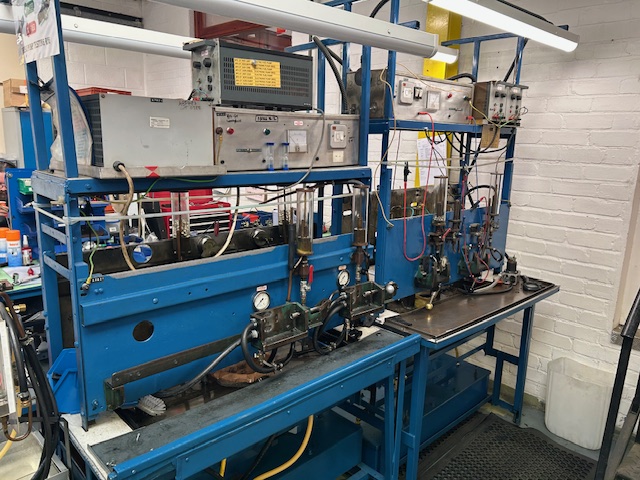
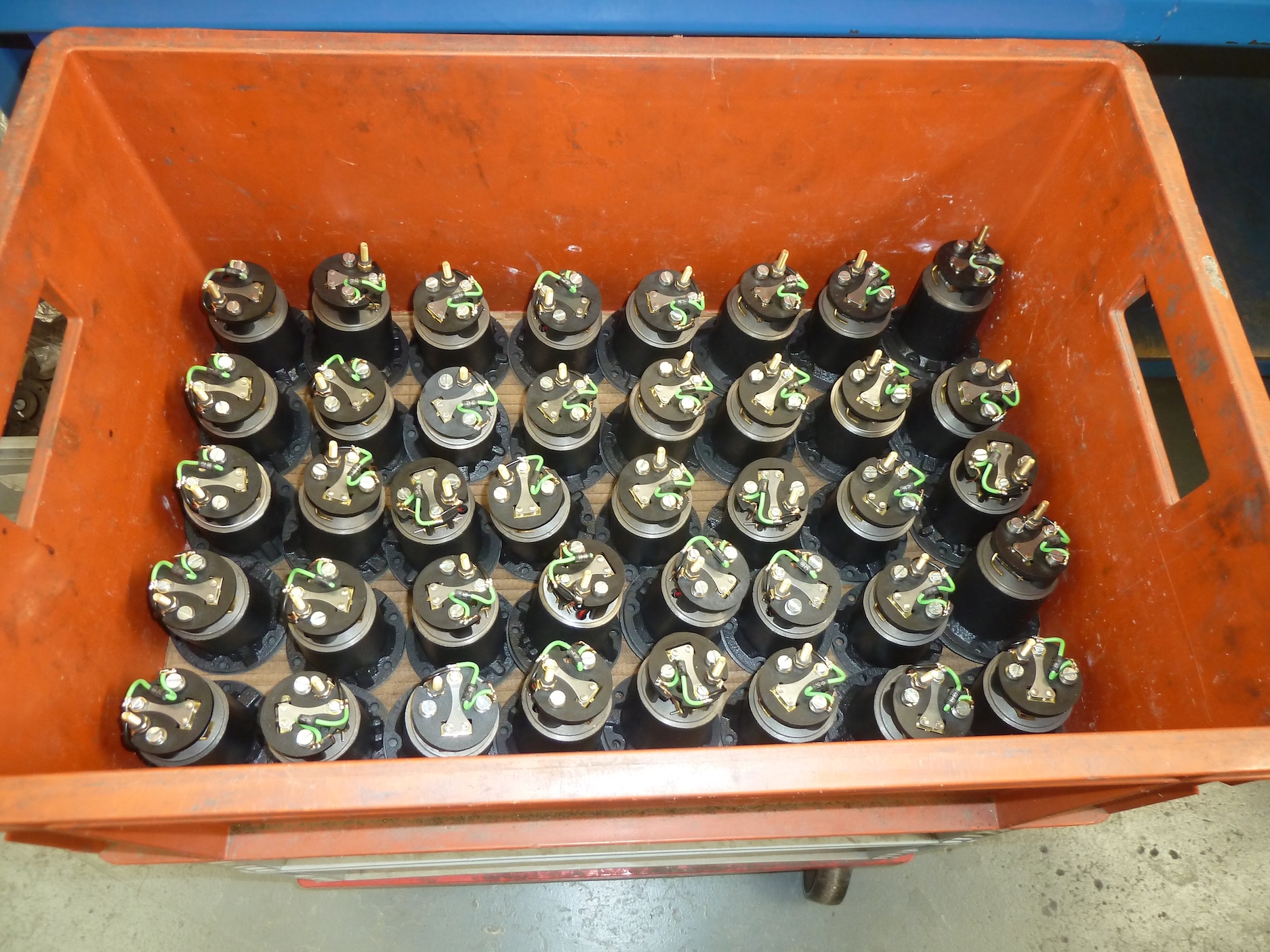
Depicted in the two photographs in the slide show below: Original Zenith flow test machine.
I found it interesting to learn that that, as far as possible, Burlen likes to produce components in-house, and 99.7 per cent of the materials used are UK-sourced. Matt explained that this approach has helped the firm to control and maintain quality.
Sometimes there are circumstances out of Burlen’s direct control that necessitate investigation of alternative options for materials. For example, the specific type of cast iron used in SU fuel pumps used to be sourced from Ukraine, but of course due to the Russian invasion/war in that country, this approach is not possible at the moment. Therefore options for obtaining similar metals elsewhere have had to be looked into.
Amal units
Burlen’s comparatively recent acquisition of Amal (in 2009) has resulted in great improvements in the availability and quality of components and units, including concentric and monobloc carburetters with aluminium (light) and zinc bodies, and indeed all post-War units.
In addition to complete carburetter units, Matt showed me the media blasting equipment and jet oven used to finish the castings.
Restoration Department
Matt showed me the ‘restoration’ department, which is always particularly busy during the winter months when many classics are ‘resting’.
The work carried out here varies in type and extent, from a relatively straightforward ‘spindle service’ to a full service to a full rebuild. This can be quite challenging for some vehicles that may be particularly old/rare, including (as an example) a pre-War Rover carburettor assembly that was a long-term job being worked on when I visited.
In such cases the work is tackled in full consultation with the carburetter’s owner, with the condition of the unit(s) being fully documented and customer preferences are taken into account as the restoration progresses.
The slide show below shows a few examples of customers’ units in the restoration department on the day I visited…
Original carburetters in stock…
I next visited the ‘stock’ area holding large numbers of original unused units, including SU instruments that were acquired (together with original drawings etc.) when SU was acquired by Burlen. Inevitably the numbers of such units held are dwindling as they are sold, but remaining units can be invaluable if a customer wishes to maintain originality.
Customer Services
Burlen’s Customer Services department tries to help all customers, whether they are looking for gaskets, a carburetter, a fuel pump or simply advice to help them. This is an area that the company is expanding, and does its best to offer assistance, including via photographs and videos received.
Conclusions
For 54 years Burlen has been helping owners of classic vehicles keep them on the road, providing top quality fuel system components that deliver reliability, excellent performance, low emissions and optimum fuel consumption.
These days the firm continues this tradition, applying new approaches as required and keeping its focus firmly on quality and customer satisfaction.
My thanks to Matt Merriman for showing me Burlen’s extensive operations; I found my visit fascinating and informative.
Burlen Fuel Systems contact details:
Burlen Fuel Systems, Spitfire House, Castle Road, Salisbury, Wiltshire, SP1 3SB. Tel. (01722) 412500.
Kim adds: Burlen offers technical advice to help enthusiasts; they say: “For those looking for technical carburetter assistance we can provide guidance in various forms. We have a range of online diagrams to aid purchasing and fitment, video how-to guides and the option to email or telephone our in-house experts. We’re a team of carburetter specialists with years of combined carburetter experience and will gladly help you with your questions or concerns.”
